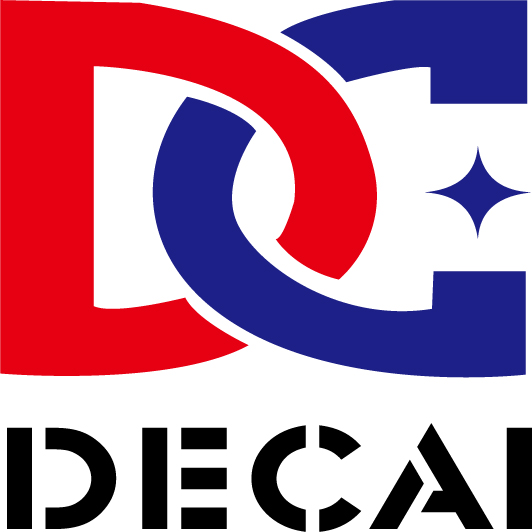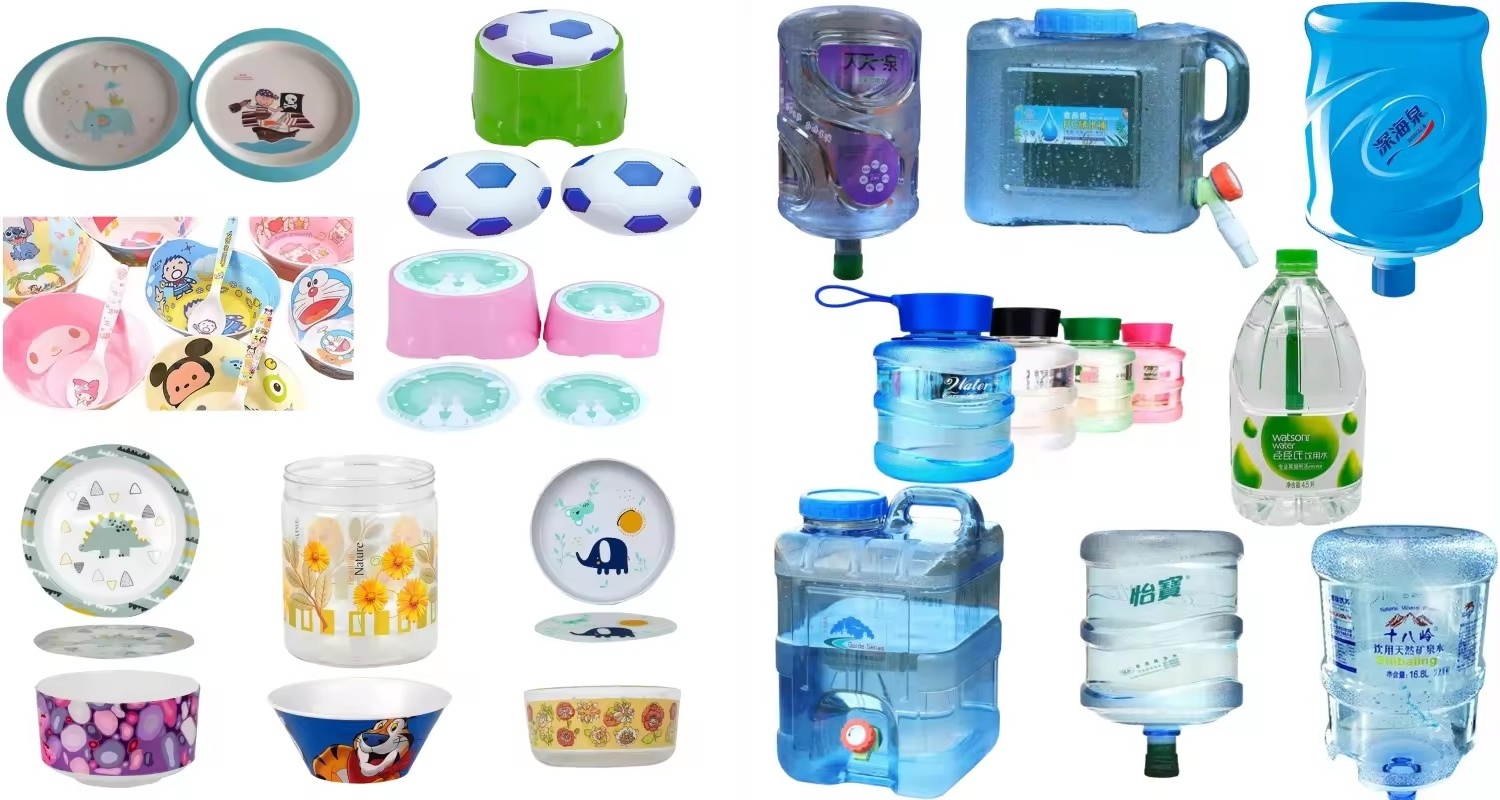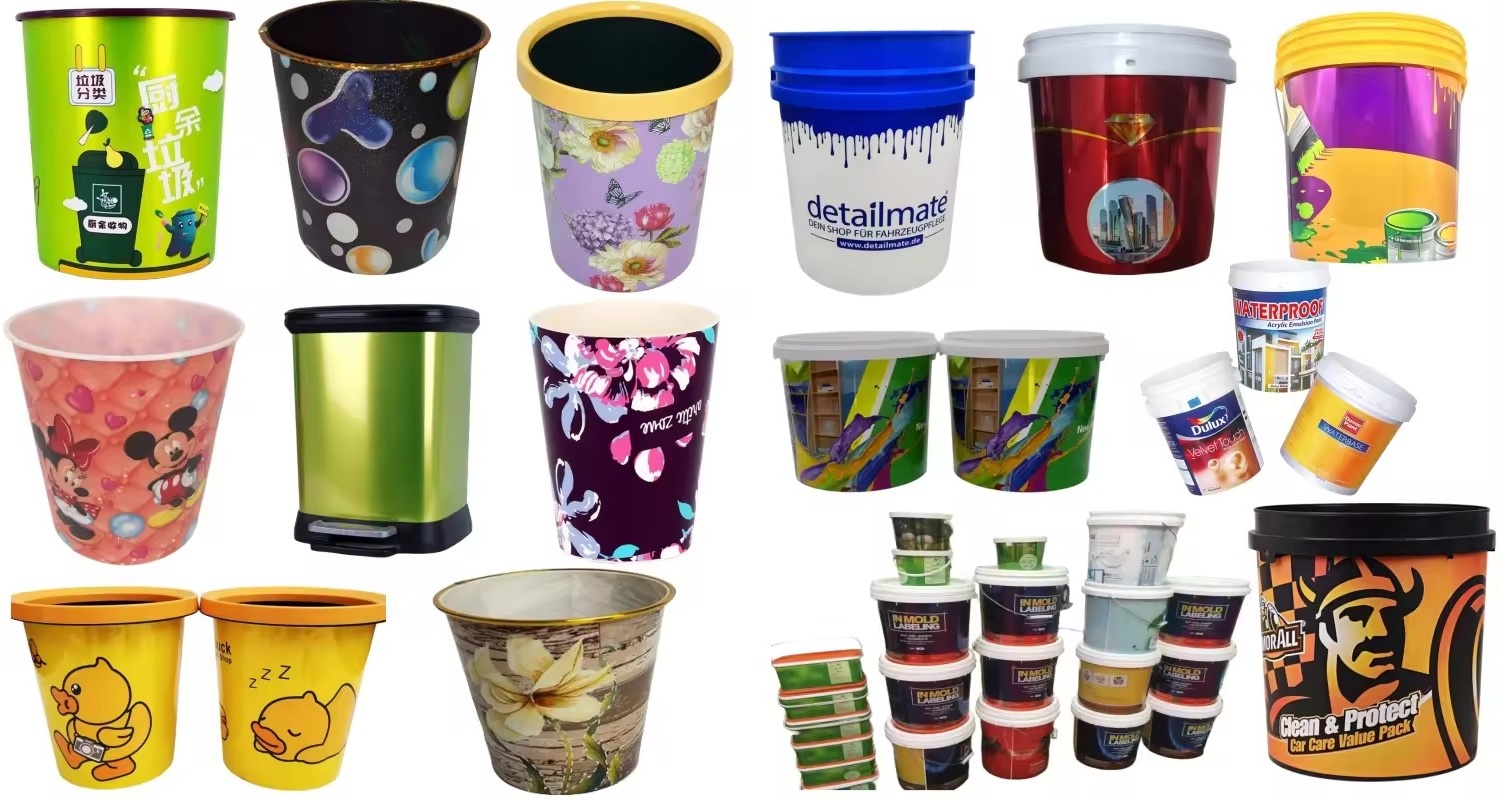In Mold Labeling (IML) is a technology that directly embeds pre printed labels into the surface of plastic products, and integrates them with plastic substrates during injection molding or blow molding processes.
This technology is widely used in the plastic industry, and its products have both functionality and aesthetics. The following are common application areas and product types of IML technology:
1. Food and daily necessities packaging
Application products: yogurt cups, ice cream boxes, butter boxes, microwave lunch boxes, preservation boxes, seasoning bottles, sauce jars
Advantages:
The label is heat-resistant, waterproof, and scratch resistant, suitable for refrigeration or heating scenarios.
It can directly print food grade safe ink that meets hygiene standards.
2. Home and cleaning products
Application products: trash cans, storage boxes, clothes hangers, detergent bottles, cleaning tool handles
Advantages:
The label is integrated with the product and will not peel off or curl up after long-term use.
The surface is easy to clean and suitable for environments that are humid or frequently exposed to chemicals.
3. Electronic appliances and household appliances
Application products: Washing machine/microwave control panel, remote control shell, power switch, decorative surface of small appliances (such as electric kettles, coffee machines)
Advantages:
Tags can integrate touch icons or complex patterns to enhance the user experience.
Wear resistant, suitable for high-frequency contact components.
4. Cosmetics and Personal Care
Applied products: lipstick tube, foundation make-up box, face cream can shampoo bottle, bath gel bottle
Advantages:
Support high-resolution printing (such as metallic texture, gradient effect) to enhance the high-end feel.
The label fits seamlessly, avoiding the problem of traditional label curling.
5. Industrial and tool components
Application products: Toolbox, measuring instrument casing, industrial equipment operation panel
Advantages:
Oil and corrosion resistance, suitable for harsh environments.
Parameters or warning information can be directly labeled without the need for additional labeling.
6. Medical and pharmaceutical packaging
Application products: Medicine bottles, medicine boxes, medical device casings, diagnostic equipment panels
Advantages:
The label material can comply with medical grade biocompatibility standards.
No risk of adhesive residue, suitable for sterile environment.
7. Toys and stationery
Application products: building blocks, toy car shells, pen holders, stationery boxes
Advantages:
Vibrant colors and long-lasting patterns that do not fade.
There are no burrs on the edges to avoid the risk of children scratching.
8. Automotive Interior and Accessories
Application products: dashboard buttons, air conditioning knobs, door interior panels, storage compartments
Advantages:
High temperature resistance, anti-aging, adapt to the environment inside the vehicle.
Customizable matte/glossy effects to enhance texture.
9. Environmental Protection and Recyclable Packaging
Application products: Reusable beverage cups, takeaway food containers, bio based plastic containers
Advantages:
The label is made of the same material as the substrate (such as PP), making it easy to recycle as a whole.
Reduce adhesive contamination of traditional labels.
10. Promotions and Customized Products
Application products: Brand customized cups, gift boxes, event souvenirs, corporate promotional materials
Advantages:
Support printing of complex patterns, QR codes, or variable data.
The label and product lifespan are consistent, and long-term promotion will not fade.
Post time: Mar-28-2025



